
|
|
Youth Diving, ca. 480 BCE True fresco on limestone slab, 3’ 4” high Tomb of the Diver Paestum compare to sculpture of Dying Warrior at Temple of Aphaia, same time period |
|
Foreshortening |
|
a receding shape on a flat surface --the eye, the hands of Youth Diving Foreshortening is a technique used in perspective to create the illusion of an object receding strongly into the distance or background. |

|
|
reconstruction, Tomb of the Diver, Paestum. True fresco on limestone slabs, bedrock floor, 7’ 1” long. |

|
|
Symposium scene, north wall, Tomb of the Diver, ca. 480 BCE notice the foreshortening on the shoulders |
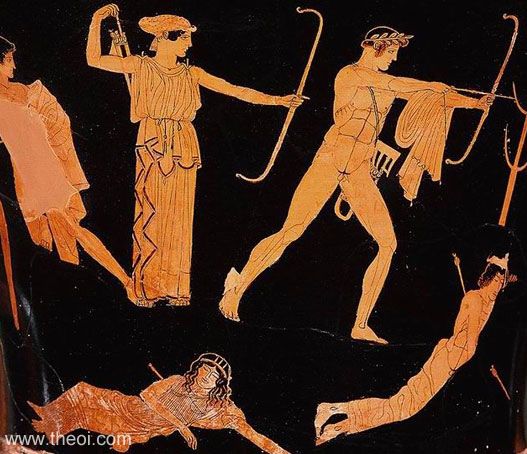
|
|
NIOBID PAINTER - Artemis & Apollo slay the children of Niobe, ca. 450 BCE Athenian red-figure calyx krater, earthenware, 1’9” high |

|
|
PHIALE PAINTER - Hermes bringing the infant Dionysos to Papposilenos, ca. 440 – 435 BCE Athenian white-ground calyx krater, earthenware, 1’ 2” high |

|
|
Dionysos(?), ca. 438 – 432, east pediment, Parthenon similar to painted figure on the side of the painted vessel depicting 'Hermes bringing infant dionysos to papposilenos' |

|
|
ACHILLES PAINTER - Warrior taking leave of his wife, ca. 440 BCE Athenian white-ground lekythos, earthenware, 1’ 5” high notice similarities to the 'Lapith woman' on the metope of the parthenon |
| “Late Classical” |
| ca. 400 – 323 BCE |
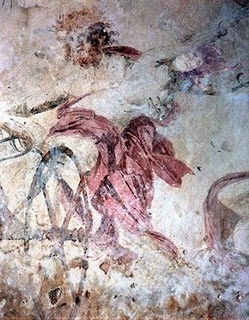
|
|
Hades abducts Persephone wall paintings, Tomb 1, Vergina, Greece Mid-fourth century (mid-300s) BCE Painted area 3’ 3.5” high |

|
|
Demeter (persephones mother) wall paintings, Tomb 1, Vergina, Greece Mid-fourth century (mid-300s) BCE Painted area 3’ 3.5” high |

|
|
PRAXITELES, Aphrodite of Knidos, marble original ca. 350 – 340 BCE Roman marble copy, 6’ 8” high |

|
|
PRAXITELES - Head of the Aphrodite of Knidos Marble original ca. 350 – 340 BCE Unusually good Roman marble copy |
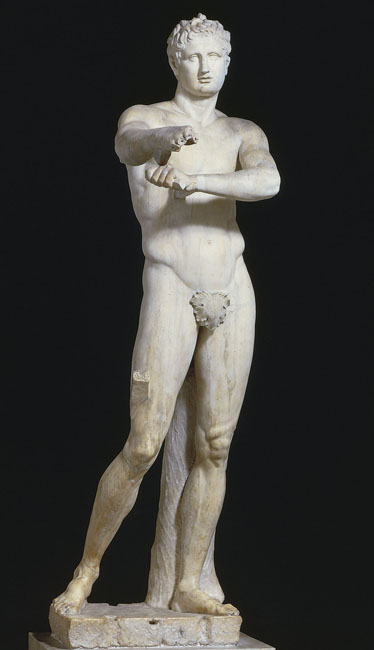
|
|
LYSIPPOS - Apoxyomenos, bronze original ca. 330 BCE Late Classical compare to doryphoros by polykleitos (450 - 440), note the difference in contrapposto of the two figures, one is from the classical period and one from the late classical |
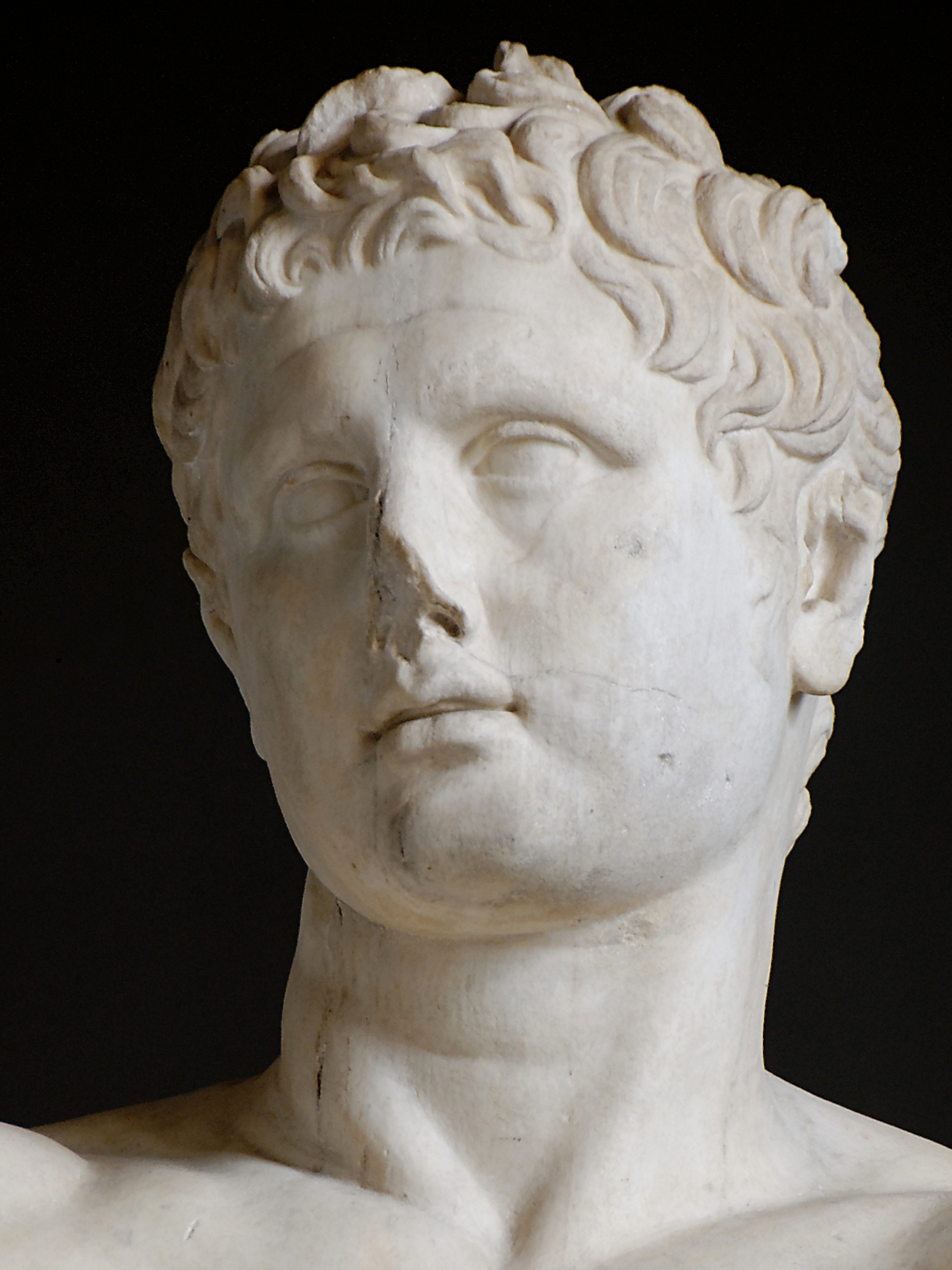
|
|
face of LYSIPPOS - Apoxyomenos, bronze original ca. 330 BCE Late Classical note similarities to the face of the woman on the Athens grave stele (340 - 330) done in the Skopas style, as well as Doryphoros (450 - 440) |

|
|
LYSIPP0S - Weary Herakles, bronze original ca. 320 BCE Roman marble copy, 10’ 5” high compare to Apoxyomenos also by Lysippos notice the switch to a more full figured, experienced, grizzled character rather than the young, sleek character |

|
|
reverse of Weary Herakles, bronze original ca. 320 BCE Roman marble copy, 10’ 5” high broader shoulders, fuller figure, tired, contemplating stance |
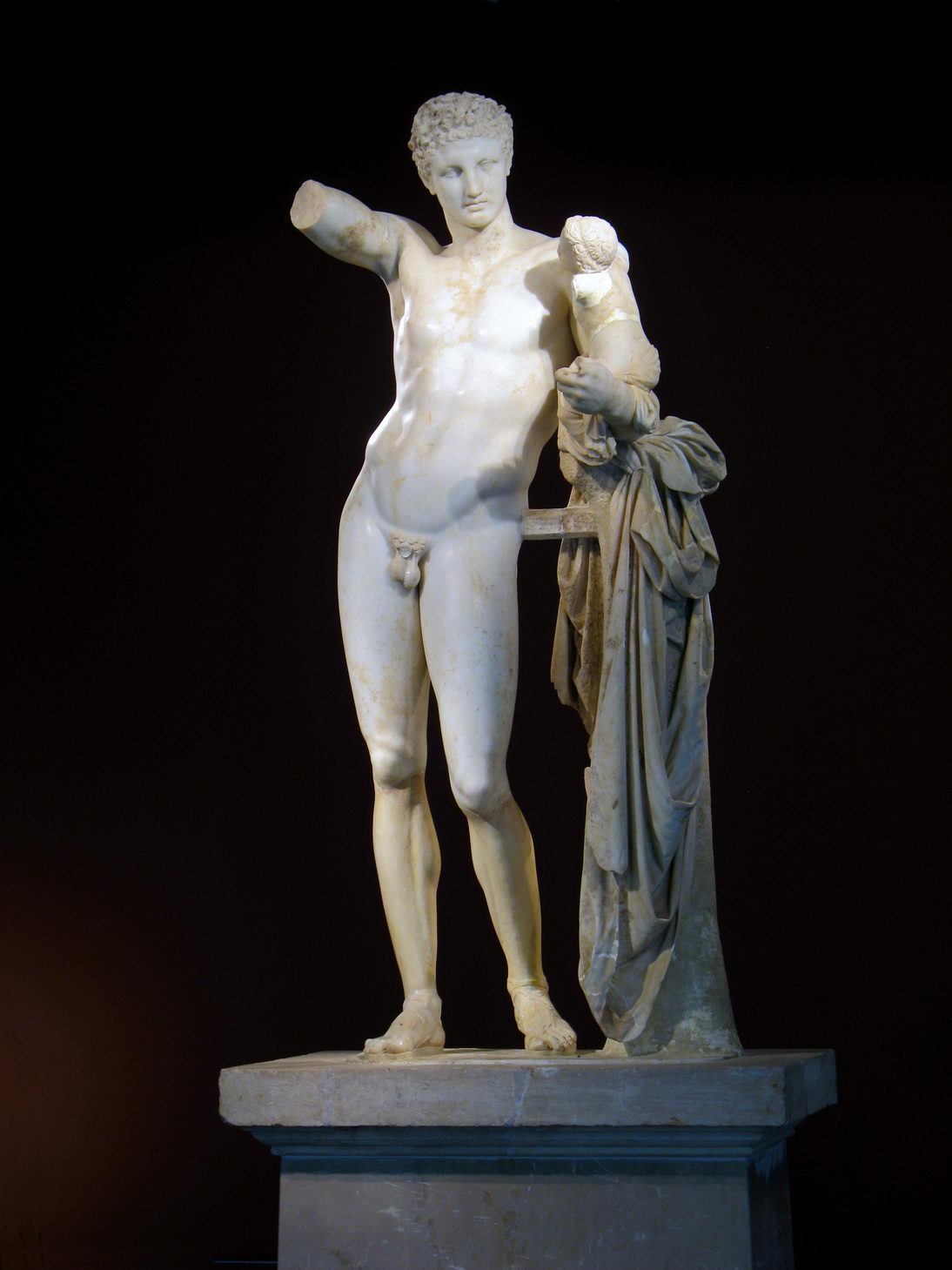
|
|
PRAXITELES? - Hermes and the Infant Dionysos, later copy of Praxiteles from ca. 340 BCE, |
| similar to hermes and dionysos by praxiteles (340) |
|
Papposilenos holding Dionysos, ca. 340 – 250 BCE Baked clay (terracotta) with white slip, 5” high, from Tanagra |